Remembering Veterans Day at the Jack Miller Center
Each year, Veterans Day honors the bravery and sacrifice of American veterans, past and present. For many years, the occasion was celebrated as Armistice Day. Although World War I officially ended with the Treaty of Versailles in 1919, fighting ceased much earlier with an armistice on November 11, 1918. President Woodrow Wilson proclaimed November 11, 1919 as the first Armistice Day. The occasion marked a “…solemn pride in the heroism of those who died in the country’s service and with gratitude for the victory…” as well as a dedication to world peace after the “war to end all wars.” Congress officially recognized Armistice Day as a national holiday in 1926 and it became a legal holiday in 1938.
In 1954, upon the urging of Raymond Weeks, a World War II Navy veteran, and Representative Ed Rees, Congress and President Eisenhower dedicated the day to all U.S. veterans in addition to World War I veterans. At this time, Armistice Day was also re-titled Veterans Day to better reflect its new purpose. Armistice Day is still a national holiday in many other countries. Although both Memorial Day and Veterans Day honor the U.S. military, Veterans Day differs from Memorial Day in that it honors all veterans without specifically focusing upon those who died in service.
The celebration of Veterans Day has not changed much since its inception. Today, there are still parades in honor of our military and ceremonies take place at Arlington National Cemetery and the Vietnam War Memorial. The Veterans Day National Ceremony annually honors our veterans with a wreath-laying at the Tomb of the Unknown Soldier, the playing of “Taps,” and a color guard parade of flags.
However it is celebrated across the country, the base sentiment remains the same: citizens wish to remember and thank our veterans for the sacrifices they have made for our nation. On the occasion of Veterans Day, JMC has gathered together fellows’ publications and online resources on the American military heritage, government policies for soldiers, as well as first-hand accounts of military life from veterans themselves.
From George Washington’s Farewell Address to the Armies of the United States, November 2, 1783:
.“…To the various branches of the Army the General takes this last and solemn opportunity of professing his inviolable attachment and friendship. He wishes more than bare professions were in his power, that he were really able to be useful to them all in future life. He flatters himself however, they will do him the justice to believe, that whatever could with propriety be attempted by him has been done, and being now to conclude these his last public Orders, to take his ultimate leave in a short time of the military character, and to bid a final adieu to the Armies he has so long had the honor to Command, he can only again offer in their behalf his recommendations to their grateful country, and his prayers to the God of Armies. May ample justice be done them here, and may the choicest of heaven’s favours, both here and hereafter, attend those who, under the devine auspices, have secured innumerable blessings for others; with these wishes, and this benediction, the Commander in Chief is about to retire from Service. The Curtain of seperation will soon be drawn, and the military scene to him will be closed for ever…”
Commentary and articles from JMC fellows:
Military Ethics in the Western Heritage
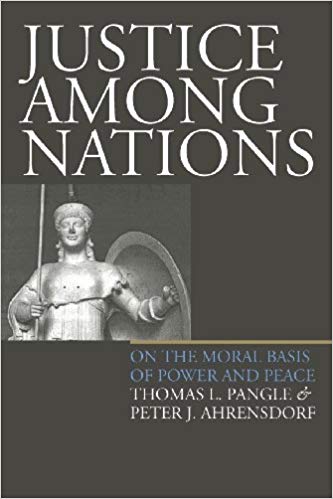 Steele Brand, Killing for the Republic: Citizen-Soldiers and the Roman Way of War. (Johns Hopkins University Press, 2019)
Steele Brand, Killing for the Republic: Citizen-Soldiers and the Roman Way of War. (Johns Hopkins University Press, 2019)
Ioannis Evrigenis, “Hobbes’s Thucydides.” (Journal of Military Ethics 5.4, 2006)
Steven Forde, “Hugo Grotius on Ethics and War.” (American Political Science Review 92.3, September 1998)
Kathryn Milne, “Family Paradigms in the Roman Republican Military.” (Intertexts 16.1, 2012)
Thomas Pangle (co-author), Justice Among Nations: On the Moral Basis of Power and Peace. (University Press of Kansas, 1999)
Benjamin Sullivan, “Paying Archaic Greek Mercenaries: Views from Egypt and the Near East.” (The Classical Journal 107.1, 2011)
American Military Virtue, the Philosophy of Service, and the Just War Tradition
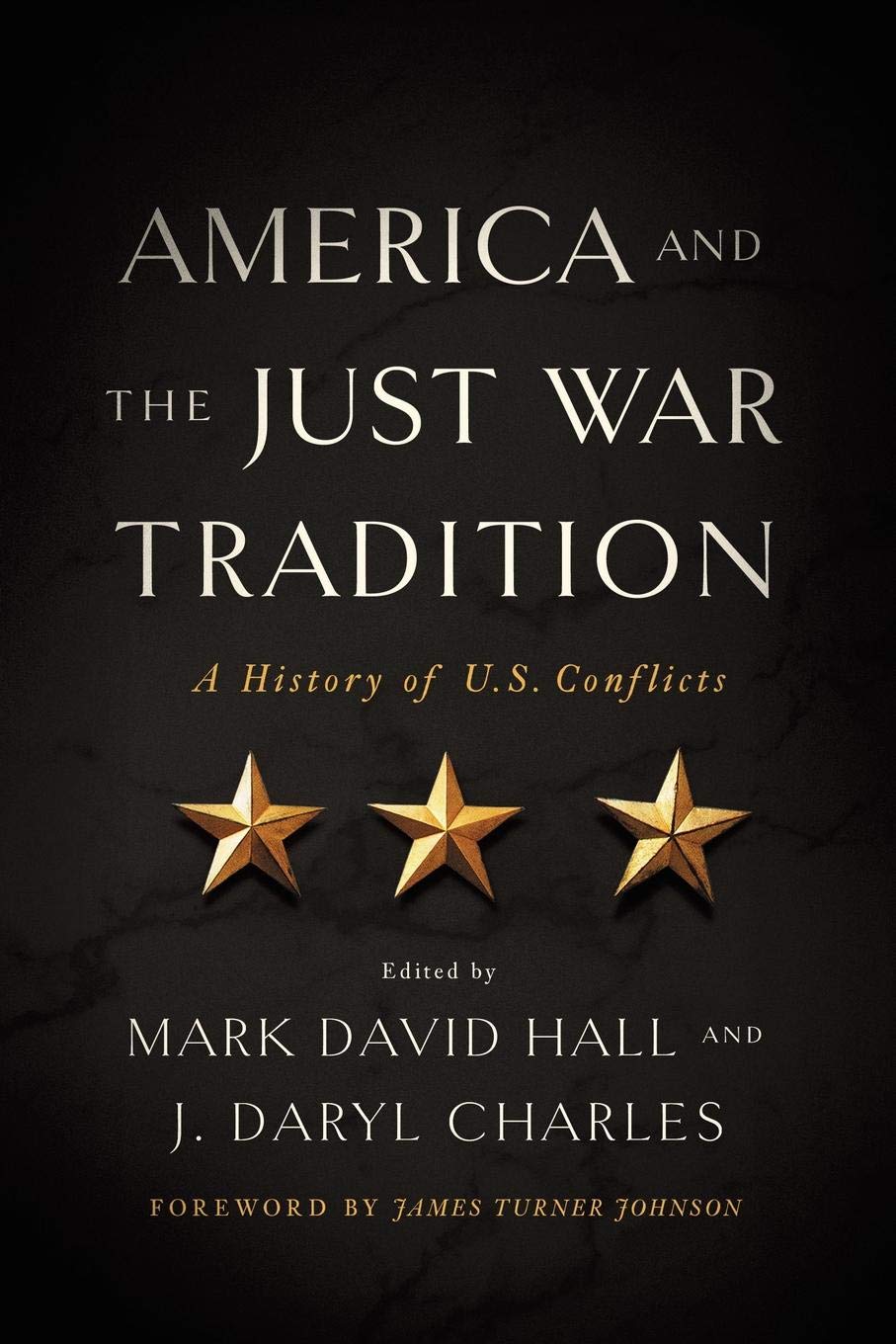 Sotirios Barber (co-author), “War and the Constitution.” (The Constitution in Wartime, Duke University Press, 2004)
Sotirios Barber (co-author), “War and the Constitution.” (The Constitution in Wartime, Duke University Press, 2004)
Paul Carrese, “For Constitution and Profession: Paradoxes of Military Service in a Liberal Democracy.” (NOMOS LI (54): Loyalty, 2013)
Mark David Hall (editor), America and the Just War Tradition: A History of U.S. Conflicts. (University of Notre Dame Press, 2019)
Mark David Hall (co-author), “The Just War Tradition and America’s Wars.” (America and the Just War Tradition: A History of U.S. Conflicts, University of Notre Dame Press, 2019)
Joshua King (co-author), “Pacem in Terris and the Just War Tradition: A Semi-centennial Reconsideration.” (Journal of Military Ethics 12.2, Fall 2013)
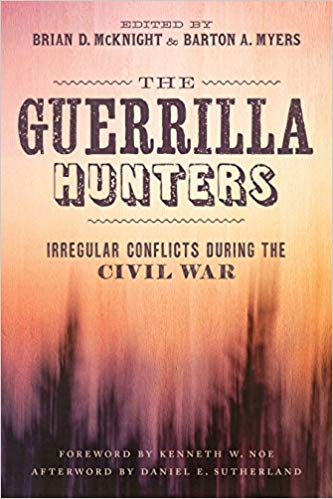 Andrew Lang, “Challenging the Union Citizen-Soldier Ideal.” (The Guerrilla Hunters: Irregular Conflicts during the Civil War, Louisiana State University Press, 2017)
Andrew Lang, “Challenging the Union Citizen-Soldier Ideal.” (The Guerrilla Hunters: Irregular Conflicts during the Civil War, Louisiana State University Press, 2017)
James Russell Muirhead (co-author), “Assessment, Proportionality, and Justice in War.” (Assessing War: The Challenge of Measuring Success and Failure, Georgetown University Press, 2015)
James Russell Muirhead, “Counterinsurgency Ethics.” (The Three Circles of War: Understanding the Dynamics of Conflict in Iraq, Potomac Books, 2010)
James Russell Muirhead, “The Ethics of Exit: Moral Obligation in the Afghan Endgame.” (Afghan Endgames: Strategy and Policy Choices for America’s Longest War, Georgetown University Press, 2012)
Thomas Pangle, “A Note on the Theoretical Foundation of the Just War Doctrine.” (The Thomist 43.3, 1979)
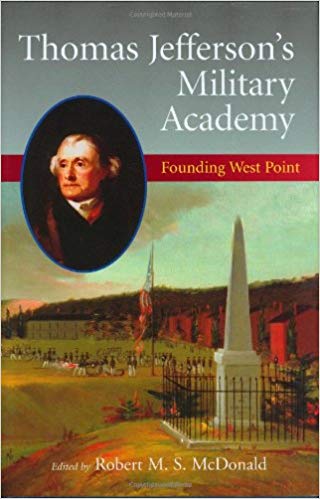 Andrew Trees, “Understanding the Story of Benedict Arnold, John Andre, and the Three Yeoman Captors: American Virtue Defined.” (Early American Literature 35.3, Fall 2000)
Andrew Trees, “Understanding the Story of Benedict Arnold, John Andre, and the Three Yeoman Captors: American Virtue Defined.” (Early American Literature 35.3, Fall 2000)
Thomas Varacalli, “National Interest and Moral Responsibility in the Political Thought of Admiral Alfred Thayer Mahan.” (Naval War College Review 69.2, Spring 2016)
Jean Yarbrough, “Duty, Honor, Country: On the Importance of the Military Virtues in Preserving our Republican Institutions.” (Claremont Review of Books II.1, Fall 2001)
Jean Yarbrough, “The Role of Military Virtues in Preserving our Republican Institutions.” (Thomas Jefferson’s Military Academy: Founding West Point, University of Virginia Press, 2004)
Letters Home and First Hand Accounts of War
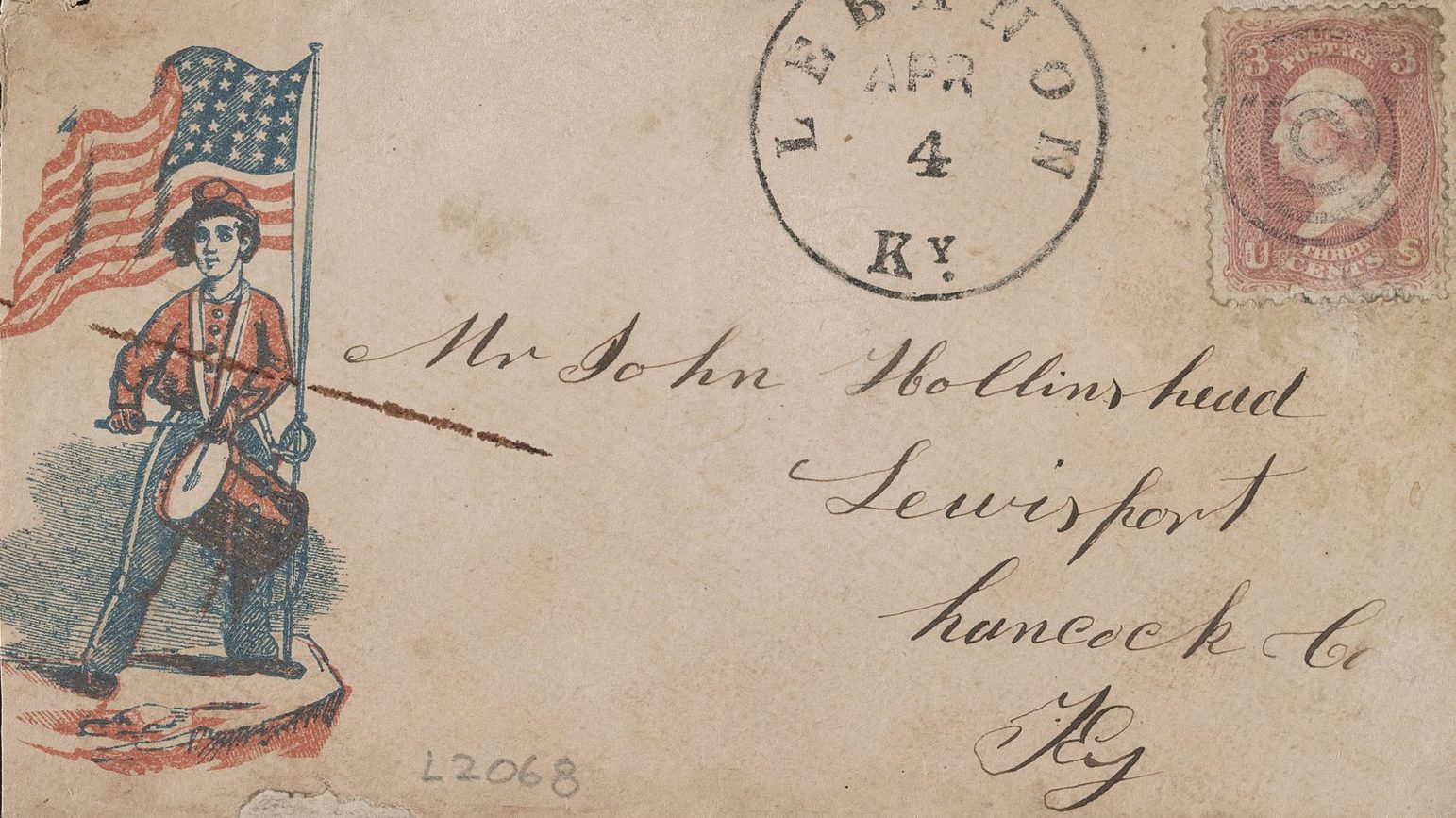 Jonathan Bean, “Military Blogs: The First Pages of History.” (The Beacon, September 16, 2009)
Jonathan Bean, “Military Blogs: The First Pages of History.” (The Beacon, September 16, 2009)
James Hill (editor), “The Indian Frontier in British East Florida: Letters to Governor James Grant from Soldiers and Indian Traders at Fort St. Mark’s of Apalache, 1763-1784.” (Florida History Online, 2010)
Jonathan White, “A Black Soldier from Charlottesville Writes to Lincoln.” (University of Virginia’s John L. Nau III Civil War Center Blog, September 30, 2016)
Jonathan White (editor), “The Civil War Letters of Tillman Valentine, Third U.S. Colored Troops.” (Pennsylvania Magazine of History and Biography 139.2, 2015)
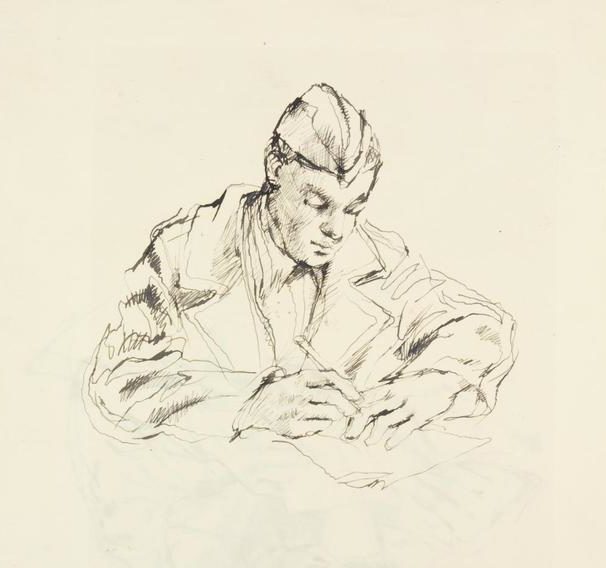 Jonathan White, “Dream Reports: Excerpts from the Dream Journal of Alexander S. Paxton, 4th Virginia Infantry.” (Military Images 35.3, Summer 2017)
Jonathan White, “Dream Reports: Excerpts from the Dream Journal of Alexander S. Paxton, 4th Virginia Infantry.” (Military Images 35.3, Summer 2017)
Jonathan White (editor), “Letters from the Monitor: The Civil War Correspondence of Jacob Nicklis, U.S. Navy.” (Civil War History 60, 2014)
Jonathan White, “Life During Wartime.” (Dickinson Magazine 89, April 3, 2012)
A History of Military Service in America: War, Recruitment, and Voting Rights
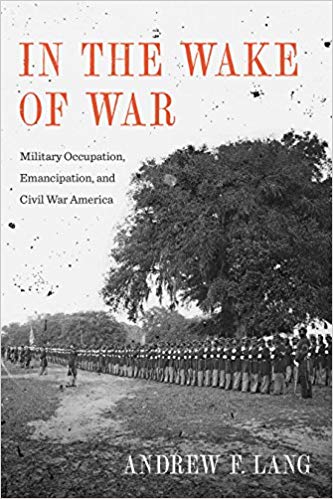 Michael Douma (co-author), “The Impressment of Foreign-born Soldiers in the Union Army.” (Journal of American Ethnic History, 2018)
Michael Douma (co-author), “The Impressment of Foreign-born Soldiers in the Union Army.” (Journal of American Ethnic History, 2018)
Danielle Holtz (editor), Oxford Encyclopedia of American Military and Diplomatic History.(Volumes I & II, Oxford University Press, 2013)
Benjamin Irvin (co-author), “Take Notice: The Not-So-1776 Recruiting Poster.” (Journal of the American Revolution, 2013)
Andrew Lang, “Republicanism, Race, and Reconstruction: The Ethos of Military Occupation in Civil War America.” (Journal of the Civil War Era 4.4, December 2014)
Andrew Lang, “Soldiering on the Texas Coast and the Problem of Nationalism in the Confederate Experience.” (This Corner of Canaan: Essays on Texas in Honor of Randolph B. Campbell, University of North Texas Press, 2013)
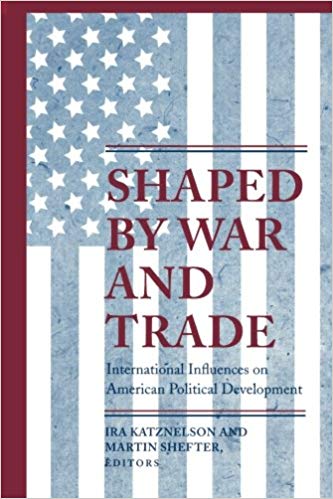 Andrew Lang, The Wake of War: Military Occupation, Emancipation, and Civil War America. (Louisiana State University Press, 2017)
Andrew Lang, The Wake of War: Military Occupation, Emancipation, and Civil War America. (Louisiana State University Press, 2017)
John Gilbert McCurdy, Quarters: The Accommodation of the British Army and the Coming of the American Revolution. (Cornell University Press, 2019)
Bartholomew H. Sparrow, “Limited Wars and the Attenuation of the State: Soldiers, Money, and Political Communication in World War II, Korea, and Vietnam.” (Shaped by War and Trade: International Influences on American Politics, Princeton University Press, 2002)
Bartholomew H. Sparrow, “Strategic Adjustment and the American Navy: The Spanish-American War, the Yellow Press, and the 1990s.” (The Politics of Strategic Adjustment, Columbia University Press, 1998)
J. Logan Tomlin, “Reluctant Among Revolutionaries: Sectarian Politics and Conscription in Revolutionary Pennsylvania, 1775-1778.” (Phi Alpha Theta Regional Journal, 2011)
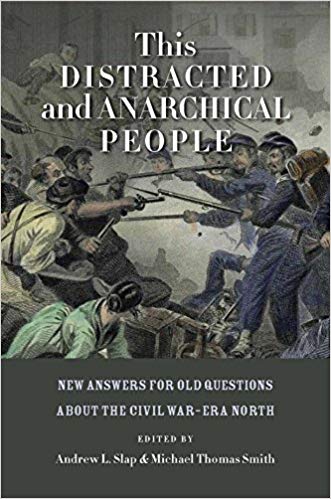 Jonathan White, “Canvassing the Troops: The Federal Government and the Soldiers’ Right to Vote.” (Civil War History 50.3, 2004)
Jonathan White, “Canvassing the Troops: The Federal Government and the Soldiers’ Right to Vote.” (Civil War History 50.3, 2004)
Jonathan White, “Citizens and Soldiers: Party Competition and the Debate in Pennsylvania over Permitting Soldiers to Vote, 1861-64.” (American Nineteenth Century History 5.2, Summer 2004)
Jonathan White, “A Civil War Hermaphrodite.” (Civil War History 62.3, September 2016)
Jonathan White, “‘For My Part I Don’t Care Who is Elected President’: The Union Army and the Elections of 1864.” (This Distracted and Anarchical People: New Answers for Old Questions about the Civil War-Era North, Fordham University Press, 2013)
Jonathan White, “The Soldier Vote of 1864 and the Expansion of Suffrage.” (The Lincoln Forum Bulletin 36, Fall 2014)
The Homefront, Civilian Life, and Public Perceptions of the Military
Michael Gillespie, “American Public Philosophy After the Cold War.” (Public Philosophy and Political Science: Crisis and Reflection, Lexington Books, 2002)
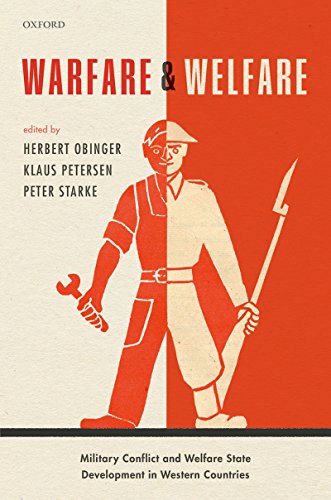 James McMurrin Lundberg, “Ken Burns’ Civil War: How the documentary changed the way we think about the war.” (Slate, June 7, 2011)
James McMurrin Lundberg, “Ken Burns’ Civil War: How the documentary changed the way we think about the war.” (Slate, June 7, 2011)
Curt Nichols (co-author), “Latino Veterans and Income: Are there Gains from Military Service?” (Latino’s and the Economy: Integration and Impact in Schools, Labor Markets and Beyond, Springer, 2010)
Curt Nichols (co-author), “Military Family Attitudes towards Civilian Leaders in the United States.” (Armed Forces and Society 39.1, 2013)
Curt Nichols, “Public Opinion and the Military: A Multivariate Exploration of Attitudes in Texas.” (Politics and Military Sociology: An Annual Review 43.1, 2015)
Robert Saldin, “Foreign Policy on the Homefront: War and the Development of the American Welfare State.” (Warfare and Welfare: Military Conflict and Welfare State Development in Western Countries, Oxford University Press, 2018)
Robert Saldin, “What War’s Good For: Minority Rights Expansions in American Political Development.” (New Directions in American Politics, Routledge, 2013)
*If you are a JMC fellow who’s published on Veterans Day, the American military, or the philosophy of war, and would like your work included here, send it to us at academics@gojmc.org.
More resources for Veterans Day:
 What So Proudly We Hail
What So Proudly We Hail
The What So Proudly We Hail online curriculum offers an ebook,“The Meaning of Veterans Day,” that considers the experience of war, and asks how we should properly honor veterans, their deeds, and their service. Each selection includes a brief introduction by the editors with guiding questions for discussion.
Each November 11, our nation commemorates Veterans Day. But what does the holiday mean, and how do we properly observe it? In this ebook, we examine the evolving meaning of Veterans Day, with selections by American authors such as Ambrose Bierce, Ernest Hemingway, Robert Frost, and Stephen Crane, among others, and speeches by Franklin D. Roosevelt, John F. Kennedy, Douglas MacArthur, and Ronald Reagan, to name just a few.
 The Library of Congress Veterans History Project
The Library of Congress Veterans History Project
The Library of Congress Veterans History Project at the American Folklife Center “collects, preserves, and makes accessible the personal accounts of American war veterans so that future generations may hear directly from veterans and better understand the realities of war.” Visitors to the site may search the military collections and actively participate by interviewing a veteran or contributing documents.
Browse the Veterans History Project >>
 Veterans Day Records at the National Archives
Veterans Day Records at the National Archives
The National Archives provides a vast array of resources for Veterans Day, including, among others, military records, images, videos, and online exhibits.
Visit the Veterans Day resources page at the National Archives >>
 The National Archives: Presidents Who Were Veterans
The National Archives: Presidents Who Were Veterans
Did you know that of our 44 presidents, 26 of them served in the U.S. military? Paige Weaver of the History Office has written an article for the National Archives blog on our presidents, from the founders to their contemporaries, who have served our country in the military capacity.
Read about our veteran presidents at the National Archives >>
 Famous Faces in the Military
Famous Faces in the Military
The National Archives keeps a special collection of military records for historically significant individuals, known as Persons of Exceptional Prominence (PEP) records. These consist of “military heroes, political leaders, cultural figures, celebrities, and entertainers” which are now available to the public. Several of these files are available in a digital format online, including the records of Paul Newman, Elvis Presley, and Jimmy Stewart. The National Museum of the United States Air Force also has an online exhibit featuring famous Air Force veterans such as Clark Gable and Ronald Reagan.
Click here to read PEP records and click here to explore the Air Force exhibit >>
*If you are a JMC fellow who’s published on Veterans Day, the American military, or the philosophy of war, and would like your work included here, send it to us at academics@gojmc.org.
![]()
![]() Follow us on Facebook and Twitter for updates about lectures, publications, podcasts, and events related to American political thought, United States history, and the Western tradition!
Follow us on Facebook and Twitter for updates about lectures, publications, podcasts, and events related to American political thought, United States history, and the Western tradition!
Want to help the Jack Miller Center transform higher education? Donate today.





